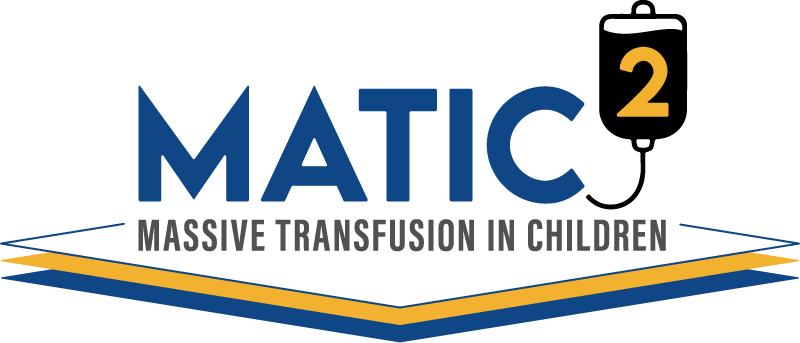What is EFIC?
For most clinical trials, before a patient can be enrolled they need to provide written permission and confirmation of understanding of what they’re being asked to do. This is called informed consent. In emergency medicine and trauma research, this is often impossible, as the injuries that this population suffers typically renders them unable to provide informed consent and require immediate care.
In EFIC trials, eligible patients are enrolled into a study prior to providing their consent. To ensure adequate research can be performed in this population, the Food and Drug Administration provides specific rules in the Code of Federal Regulations to guide how EFIC can be properly utilized. Once patients have been enrolled and are stable, the patient or their parent/legal guardian (if <18 years of age) are approached to obtain permission to continue involvement in the study.
Why is EFIC being used in MATIC-2?
MATIC-2 is seeking to enroll children (<18 years of age) who have life-threatening bleeding as the result of traumatic injury. Due to the nature of their injury and need for immediate medical attention, obtaining written informed consent from their parent/guardian is rendered nearly impossible.
What are some of the rules surrounding implementing an EFIC Trial?
- The subjects must be in a life-threatening situation
- Obtaining informed consent is not feasible because:
- The subject cannot give their consent due to their medical condition;
- The intervention being studied cannot be delayed;
- It is impossible to identify eligible individuals prospectively
- There must be the potential of direct benefit to the patient
- The trial could not be conducted without EFIC
In addition, a lengthy community consultation and public disclosure process must be conducted, completed, and approved by the local regulatory authority prior to the beginning of the trial. Community consultations include presenting the study and receiving feedback from local community representatives and members of the public in which the research will be conducted. Individuals will be then provided the opportunity to opt-out of the chance of enrollment into the trial.
The MATIC-2 trial has contracted the University of Alabama at Birmingham (UAB) Center for Injury Science to lead the community consultation effort at all participating MATIC-2 sites. The UAB team has extensive experience in conducting EFIC trials and in guiding research centers through the lengthy community consultation process to ensure that all relative populations are engaged and that the highest ethical standards are maintained by each site’s investigator. Once the community consultation process is complete, the study Institutional Review Board must approve the site to begin enrollment.
